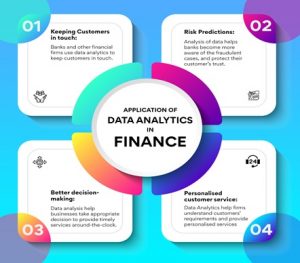Description
Introduction of Data Analytics for Finance:
The Data Analytics for Finance Professionals training is designed to equip finance professionals with the knowledge and skills to leverage data analytics for making informed decisions, improving financial forecasting, and enhancing overall business performance. In today’s data-driven world, financial professionals need to go beyond traditional methods to harness the power of data for optimizing financial strategies. This course covers key concepts, techniques, and tools that can be used to interpret financial data, identify trends, and predict financial outcomes.
Prerequisites:
To fully benefit from this training, participants are expected to have:
- Basic understanding of finance – Familiarity with financial statements, budgeting, and financial management concepts.
- Basic mathematical skills – A fundamental knowledge of statistics and mathematics, especially related to financial metrics.
- Exposure to Excel – Comfort with basic functions in Microsoft Excel, as it will be used for data handling and analysis.
- Optional – Familiarity with any data analysis tools (e.g., SQL, Python, Power BI) is beneficial but not required.
Table of Contents:







Reviews
There are no reviews yet.